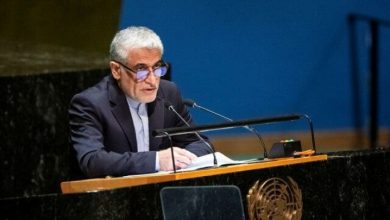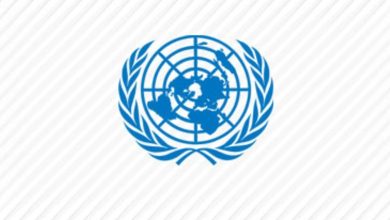Security Councils inability to reach consensus on the issue of accountability for international crimes
The present report is the fourth annual report submitted to the Human Rights Council by the Special Rapporteur on the promotion and protection of human rights and fundamental freedoms while countering terrorism, Ben Emerson.
The Special Rapporteur lists the key activities he undertook from 17 December 2013 to 31 December 2014 and examines the human rights challenges posed by the fight against Daesh in Iraq and Syria and makes recommendations to States.
The Special Rapporteur has recalled the criteria for the existence of armed conflicts in Iraq and Syria of a non-international character, namely the intensity and protraction of the conflict and the degree of organization of the parties. It is generally accepted that Daesh is a sufficiently organized non-State armed group to be considered as a party to the non-international armed conflicts in Iraq and the Syrian Arab Republic and that the situations in both countries amount to armed conflicts of a non-international character.
International humanitarian law applicable to armed conflicts of a non-international character is applicable in both Iraq and the Syrian Arab Republic. All parties to the conflict, including Daesh, are therefore bound by common article 3 of the Geneva Conventions, which establishes minimum standards concerning the treatment and protection of civilians, those no longer actively participating in the hostilities and civilian objects. They are also bound by the customary law norms contained in the protocol additional to the Geneva Conventions of 12 August 1949 relating to the protection of victims of non-international armed conflicts.
In addition, it is now well established that in a situation of armed conflict, international human rights law continues to apply, and both international human rights law and international humanitarian law frameworks will act in a complementary and mutually reinforcing way.
Mr. Emerson criticizing Security Council’ inability to reach consensus on the issue of accountability for international crimes, emphasizes establishment of civil criminal courts in Iraq and Syria as to consider the rights of victims of terrorism and prevent more future violence.
The failure of the Security Council to refer the situation in Syrian Arab Republic to the Court has contributed to crimes continuing to be committed unabated. As neither Iraq nor the Syrian Arab Republic are parties to the Rome Statute, the Court has no territorial jurisdiction over crimes committed on their soil. The Prosecutor of the Court has reviewed those cases in which the Court could exercise personal jurisdiction over alleged perpetrators who are nationals of a State party to the Rome Statute, but has said that the prospects of the Court investigating and prosecuting those with most responsibility in the Daesh leadership would be remote. In the absence of a Security Council resolution referring the situation to the Court, the Special Rapporteur calls on the Governments of Iraq and the Syrian Arab Republic to become parties without delay to the Rome Statute and to accept the jurisdiction of the Court over the current situation under article 12 (3).
With regard to the internal and external structure of the terrorist groups in armed conflicts in Iraq and Syria that is not clear to form obligation under international law framework, but the observance of the human rights in such conflicts is paid more attention and the complementary role of human rights and humanitarian rights is emphasized.
The threat of terrorist groups in Iraq and Syria is not a new one, but it has increased the importance of instituting the terrorism and violent extremism in the region. The role of the security council with regard to the resolutions 1989(2011)، 2170(2014) , 2178(2014) as to prevent the violent terrorism in this region has not been so much acceptable, though the reports of the investigation commission and the special rapporteur of the united nations as well as human rights institutions have been acceptable.
At the end, revealing the existence and the formation of Daesh, Mr. Emerson enumerates the violations of human rights and humanitarian rights, including illegal executions in public, rape and sexual violence against women and girls, forced displacement, abduction, forced disappearance, mass killing, forced conversion, destruction of civilization and compulsory change in the way of life.
According to the report of the guardian news center on 17 December 2015, Up to 30,000 foreign fighters from as many as 100 countries have travelled to Syria and Iraq since 2011, with more than 7,000 arrived in the first six months of 2015. Hence, Association for Defending Victims of Terrorism has repeatedly warned the return of these terrorists to their countries as a concern, expressing the “world jurisdiction” for all states to bring terrorists to justice and encouraging them to establish civil criminal courts. Independent inquiry commission for Syria has announced that all individuals who have committed gross violations of human rights will be, according to international law, under responsibilities.
Association for defending victims of terrorism emphasises that terrorism destabilises the peace and security of the world, urging all stats to make much more attempt to protect the civilian and bring terrorist, while coming to their countries, to justice. Prolonging the armed conflicts in the region and the absence of effective conduction of peace and security institutions has paves the way for terrorists groups to violate the humanitarian rights and consequently to destroy the minimum welfare and living and increase the suffering and plight of innocent people. States are under an obligation to take measures to protect civilian populations from widespread and systematic acts of violence and terrorism. It is essential that any response be grounded in respect for international law, including international humanitarian law, international human rights law.
A/HRC/29/51





